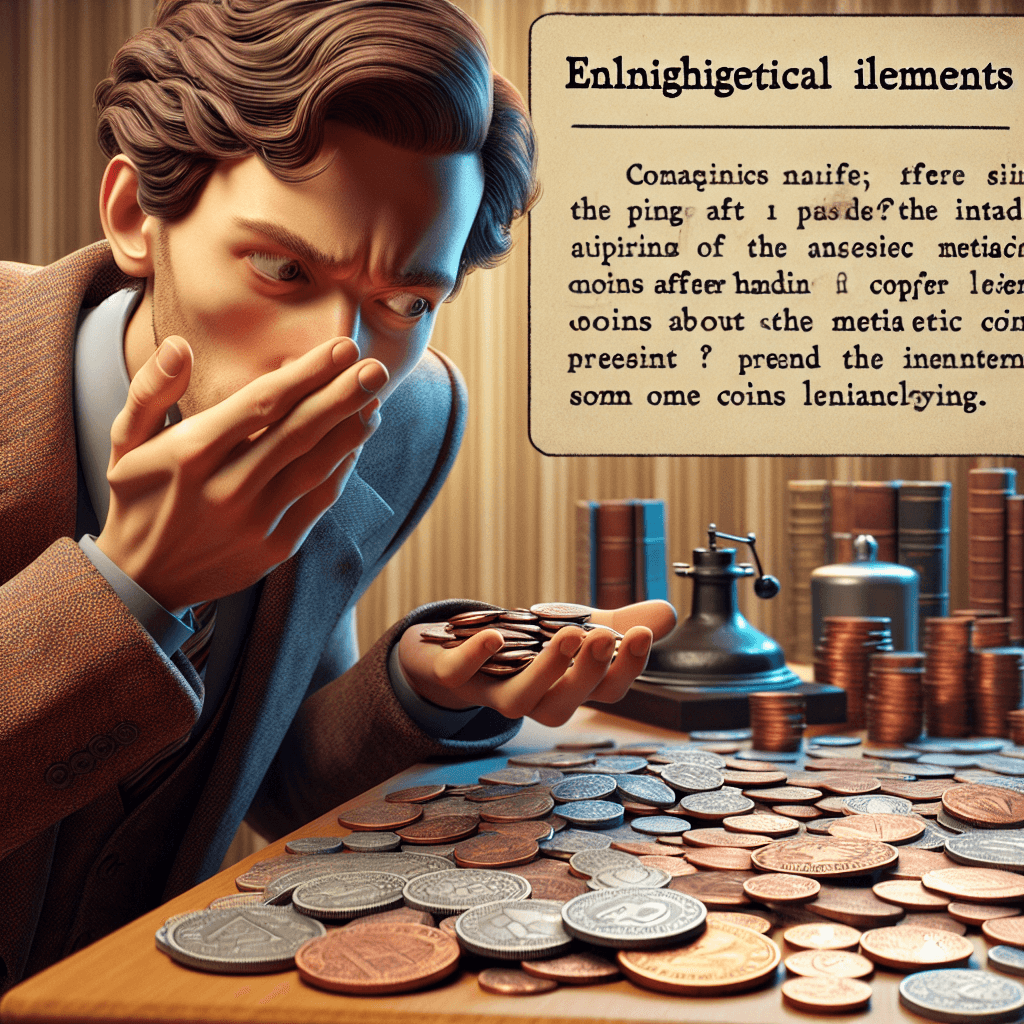What causes the strange metallic smell on your hands after touching coins
That metallic smell on your hands isn't from the coins themselves. You're actually smelling a unique chemical reaction happening on your own skin.


Too Long; Didn't Read
TLDR: The metallic smell is not the coin itself. It is a chemical reaction between the metal from the coin and the oils on your skin, creating new smelly compounds. You are smelling a type of body odor triggered by the metal.
The Chemistry of Change: What Causes the Strange Metallic Smell on Your Hands After Touching Coins?
We’ve all experienced it. You handle a handful of loose change to pay for a coffee or drop some coins into a parking meter. A few moments later, you catch a whiff of a distinct, sharp, "metallic" odor on your fingertips. For years, most of us have simply assumed that this is the smell of the metal itself—the copper from a penny or the nickel alloy from a quarter. But what if the coins don't have a smell at all? The truth is a fascinating bit of personal chemistry that has more to do with your body than the money in your pocket. This post will break down the science behind that strange metallic smell and reveal the real culprit behind the odor.
The Surprising Truth: Metal Doesn't Smell
The first and most important fact to understand is that solid metals, in their pure and stable state, do not have a scent. Odor occurs when volatile molecules travel through the air and into our noses. Solid, non-reactive metals like the ones used in coins don't release these molecules. So, if the metal isn’t smelly, what is?
The smell isn't coming from the coin; it's a chemical reaction happening on you. The metallic odor is, in essence, a type of human body odor triggered by contact with metal. Groundbreaking research published in the journal Angewandte Chemie International Edition by German and American chemists pinpointed the exact process. They discovered that the smell is the result of a rapid reaction between the metal and the oils naturally present on your skin.
The Real Culprit: A Chemical Reaction on Your Skin
When you touch a coin, your sweat creates a slightly acidic environment on your skin. This moisture causes metal atoms on the coin's surface to corrode slightly, releasing positively charged metal ions. For coins, these are primarily copper (Cu²⁺) and iron (Fe²⁺) ions, as many "silver" coins are a copper-nickel alloy, and even pennies have iron content.
Here’s a step-by-step breakdown of what happens next:
- Ions Transfer: The iron or copper ions transfer from the coin to your hand.
- Skin Oils React: These metal ions react with lipid peroxides, which are compounds found in the oils and fats produced by your skin. These lipids are always present, but they can break down over time due to exposure to air and UV light.
- Volatile Molecules Are Created: The metal ions act as a catalyst, rapidly breaking down the lipid peroxides into a cocktail of volatile organic compounds. These are the small, airborne molecules that your nose can detect as a scent.
The most significant of these compounds is a molecule called 1-octen-3-one.
Meet the "Smelly" Molecule: 1-Octen-3-one
Scientists have identified 1-octen-3-one as the primary source of the classic "metallic" smell. This organic molecule has a very strong, mushroom-like metallic odor. The human nose is incredibly sensitive to it, capable of detecting it at extremely low concentrations—as little as one part per trillion. This explains why the smell seems to appear so quickly and powerfully after just a brief touch.
Interestingly, this same molecule is also associated with the smell of blood. Blood gets its metallic odor from the same reaction: iron ions from hemoglobin reacting with lipids. This shared chemical signature is why the smell of coins is often compared to the smell of blood.
This phenomenon isn't limited to just coins. The same reaction occurs when you touch iron railings, steel tools, weights at the gym, or any other object made of iron or copper, proving the smell is a universal reaction between these metals and human skin.
Conclusion: The Scent of You and Metal
So, the next time you handle loose change and notice that familiar metallic tang on your hands, you’ll know the truth. You aren't smelling the penny or the quarter. You are smelling the result of a rapid chemical reaction—a unique "body odor" created when ions from the coin meet the oils on your skin. That strange scent is the signature of 1-octen-3-one, a molecule that tells a fascinating story of chemistry at your fingertips. It’s a small but powerful reminder that science is happening all around us, and even on us, in the most ordinary moments of our day.


